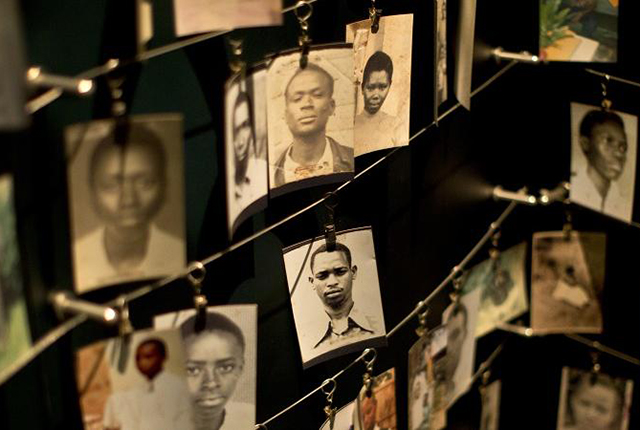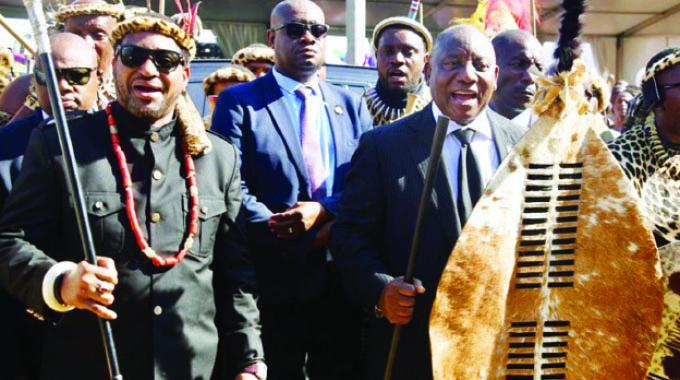Rwanda reflects on genocide

KIGALI-Rwanda’s President Paul Kagame on Tuesday launched the 26th commemoration of the Genocide against the Tutsi urging Rwandans to pause to reflect on the tragedy in which over one million people were killed in cold blood.
On the 7th of April 1994, the hardline government began a campaign to exterminate the Tutsi ethnic group which ended in July the Rwanda Patriot Front led by President Kagame defeated the genocidal regime and its militias. In launching the commemorations, President Kagame and First Lady Jeannette Kagame, laid a wreath and lit a flame of hope at Kigali Genocide Memorial, where over 250,000 Genocide victims are laid to rest.
“Today, we pause to reflect on the tragedy we experienced and what we lost, both individually and as a nation,” President Kagame said in Kigali, Rwanda’s capital.
“We will continue to educate new generations of Rwandans about what happened to our country, and what we learned from it. We are putting those lessons into practice for the benefit of those who come after us.
The lessons of our history have united us. They teach us the value of good leadership that cares for the well-being of all citizens.”
He added: “We have learned the importance of working together to build a better future for all Rwandans. The resilience and collective compassion of Rwandans will continue to serve us well as a nation, as we navigate new challenges, including those we are experiencing today.”
President Kagame said this year’s commemorations were being held amid unusual measures due to the coronavirus outbreak.
“Let me begin by thanking Rwandans around the country, as well as our friends, who are following today’s commemoration from their homes,” President Kagame said.
“I also thank you for participating in these unusual measures that are necessary to combat the coronavirus pandemic in Rwanda and around the world.”
He said this year’s commemoration was challenging for survivors and families and for the country because people cannot be together physically to comfort one another.
“It is not an easy thing to do,” he said, adding: “Rwandans are used to coming together with solidarity and collective strength. We do this through our national ceremonies, and activities such as Walk to Remember, Night Vigil, and group discussions in our communities.”
A lock down has been introduced in Rwanda to prevent the spread of the COVID19 which has affected 104 people. But President Kagame said, the circumstance would not prevent Rwanda from fulfilling its obligation to commemorate this solemn anniversary, honour those were killed and console survivors.
He said the Rwandan story will help the world become a better place.
“Everyone who lives on this globe is interconnected. So we will continue to contribute to making our world a better place by sharing our story and our ideas for innovation, whenever it can be helpful,” he said.
“Doing so is an investment in hope which makes us better people, and reminds us that no one person is self-sufficient.”
In his message to mark the Anniversary of the 1994 Genocide against the Tutsi, the Secretary-General of the United Nations António Guterres honored those who were killed.
“Today, we recall the genocide against the Tutsi in Rwanda — when more than one million people were systematically murdered in just 100 days,” he said.
Mr Guterres said the world must shun hate speech and xenophobia, and reject the forces of polarization, nationalism and protectionism.
“Only by recognizing that we are all one human family sharing the same planet will we be able to rise to the many global challenges that confront us – from COVID-19 to climate change,” he said
He praised Rwanda saying its remarkable recovery is a global inspiration.
“Since the genocide, Rwanda has demonstrated that it is possible to rise from the ashes, to heal and to rebuild a stronger, more sustainable society,” Mr Guterres said.
“As we look ahead to accelerating efforts to achieve the Sustainable Development Goals, let us take inspiration from the ongoing lesson of Rwanda.”
The Chairperson of the African Union (AU) Commission, Moussa Faki Mahamat has urged all African nations to bring to book Genocide fugitives, as well as combat genocide ideology and denial. He made the remarks through a statement issued on April 7, 2020 the day on which Rwanda starts commemoration week in memory of the over one million victims of the 1994 Genocide against the Tutsi.
“As we remember the fallen mothers and fathers, brothers and sisters, sons and daughters in Rwanda, we should not be oblivious of the fact that genocide is always well planned, deliberately executed with impunity, yet genocide is also always followed by denial,” he said.
“We should, therefore, redouble our efforts in fighting genocide ideology, its denial as well as impunity. If genocide ideology persists, its denial will continue unabated and impunity will reign. This task should not be the responsibility of the leadership and people of Rwanda alone,” he observed.
Fighting impunity, he said, should equally be at the heart of the continent’s collective efforts as AU member states as well as the international community by arresting, prosecuting or extraditing indicted fugitives.
“Last year at its 836th meeting held on 3rd April, the AU Peace and Security Council called upon countries to arrest, prosecute or extradite fugitives accused of genocide. It is imperative that countries move towards implementation of this decision,” he pointed out.










Comments